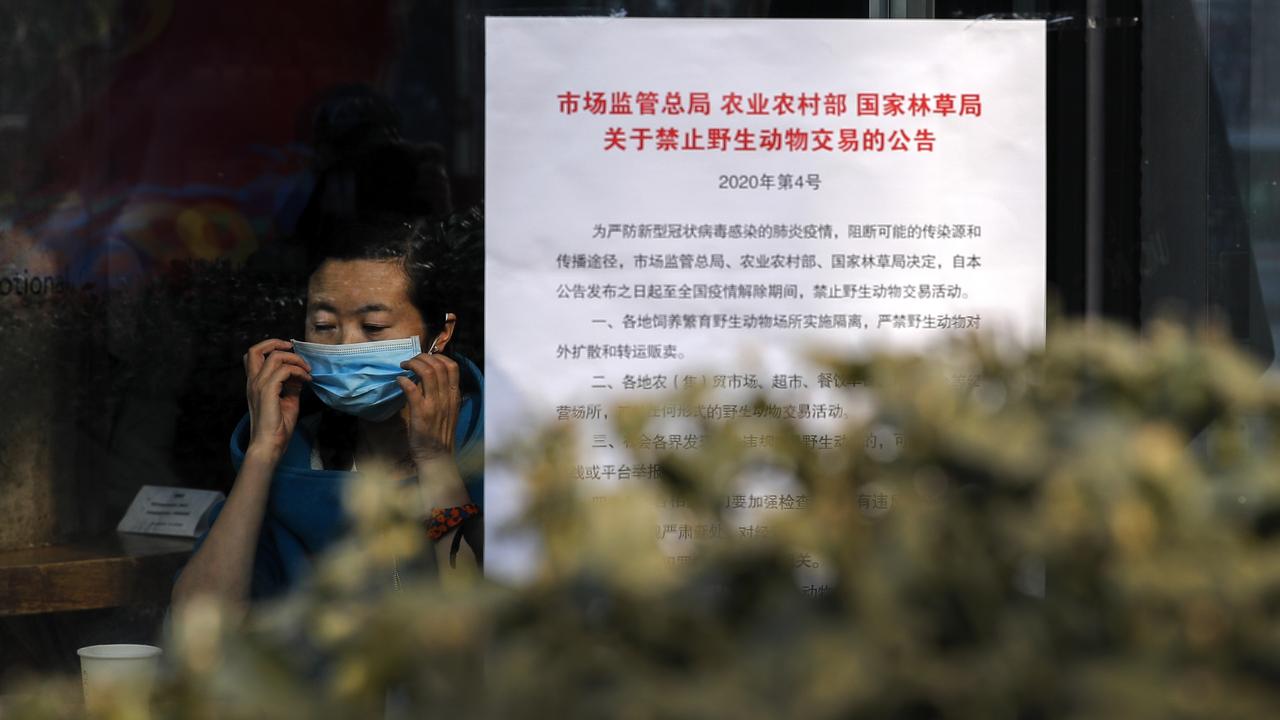China bans trade and consumption of wild animals
China has announced a “comprehensive” ban on the trade and consumption of wild animals, thought to be responsible for the deadly coronavirus outbreak.
China has announced an immediate and “comprehensive” ban on the trade and consumption of wild animals, a widespread practice thought to be linked to the deadly coronavirus epidemic.
The Covid-19 outbreak has killed more than 2500 people, largely in China, and infected some 77,000 people in 29 countries since December last year, sparking fears of a global pandemic.
It was initially believed to have originated in a controversial “wet market” in the city of Wuhan that sold exotic wild animals, jumping from an animal to a human host — although recent reports have cast doubt on that explanation.
The Communist Party announced the ban at a meeting on Monday, at which the decision was made to postpone China’s annual parliament session for the first time since the Cultural Revolution, state broadcaster CCTV reported.
“Since the Covid-19 outbreak, the eating of wild animals and the huge hidden threat to public health from the practice have attracted wide attention,” the Standing Committee of the National People’s Congress said, according to the South China Morning Post.
The decision comes after an earlier temporary ban announced shortly after the outbreak began, and follows calls by Chinese President Xi Jinping to crack down on illegal wildlife markets and trade.
It is expected to have major ramifications for China’s economy. A government-sponsored report in 2017 found China’s wildlife trade and consumption industry was worth 520 billion yuan ($112 billion) and employed 14 million people.

Many of those people are from impoverished regions where wildlife farming is an important source of income. The ban includes wild animals in breeding farms such as civet cats, which were thought to be linked to the SARS outbreak 17 years ago.
“The transformation of the breeding industry should be combined with China’s poverty alleviation programs that have budgets announced every year,” said Zhou Ke, an adviser to the National People’s Congress Standing Committee.
According the report, the use of wild animals for scientific and medical purposes will be allowed but management of such facilities will be strengthened.
Many of the animals — such as the Pangolin, a widely trafficked and endangered mammal — are considered delicacies.
Li Shuo, a senior global policy adviser at Greenpeace in Beijing, told Bloomberg the process of ending trade and consumption “will be a challenging exercise” and that determining whether traditional Chinese medicines are included and what counts as illegal are some of the issues that need to be tackled.
China’s existing wildlife protection law, enacted in 1989, bans eating of endangered species but is riddled with loopholes. According to the People’s Daily, wild animals covered by the ban includes those already subject to the wildlife protection law, wild animals that have “important ecological, scientific and social value” and other wild animals including those bred in captivity.
“The current law only protects limited species of wildlife, but the ban forbids eating in a general sense, not only animals living in the wild, but also the ones in the breeding industry,” Zhou Haixiang, a member of a Chinese environmental protection group, told the South China Morning Post.




